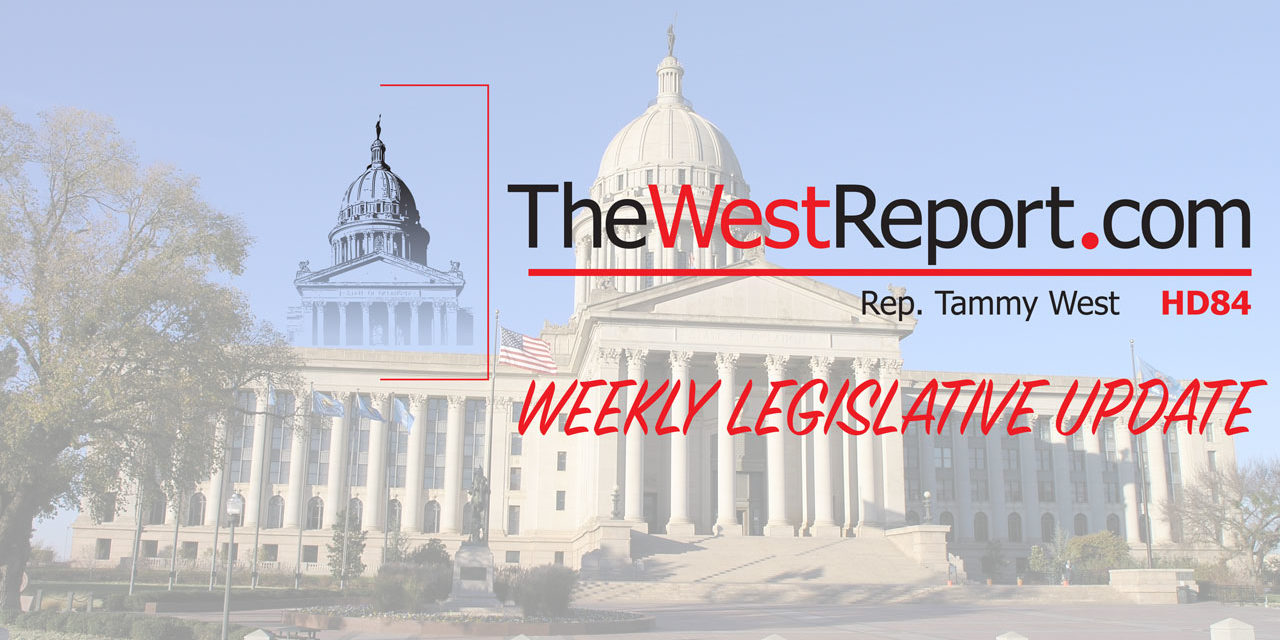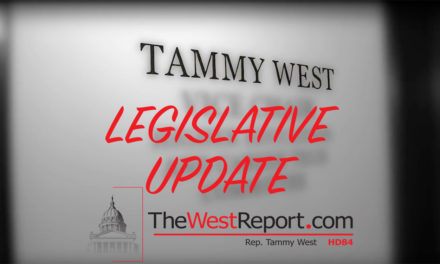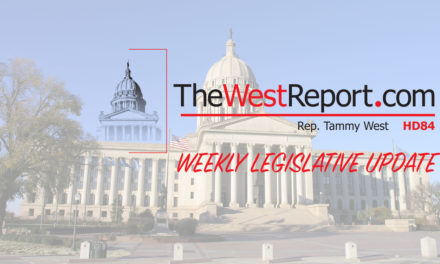Bill Allowing Sale of Insurance across State Lines Passes Committee
The House Insurance Committee today passed a bill that will allow individuals to purchase health insurance across state lines.
Senate Bill 478, by state Rep. Lewis Moore and Bill Brown of the Senate, will allow the Oklahoma Insurance Department to compact with other states in offering more affordable and better tailored individual health insurance policies across state lines. The plans would still have to be approved by each participating state legislature.
He said the bill will allow individuals to keep their current Oklahoma plans if they wish, or they can shop for other competitive plans to meet their individual needs. The compact also will allow individuals to find better coverage in some instances, such as for autism care that is better provided for by 46 other states than in Oklahoma, he said.
Moore said this bill puts in place the mechanism for the insurance department to move forward on negotiating plans and forming a compact. The bill has protections for Oklahoma companies as they compete to match policies offered by other states. He added the National Association of Insurance Commissioners said they are against the federal government mandating such compacts, but they favor each state choosing participation for itself.
Oklahoma Senate approves earlier sunset of wind tax credit
Senate President Pro Tempore Mike Schulz released the following statement after the Senate approved HB 2298, which moves up the sunset date of the zero-emissions tax credit to July 1, 2017.
HB 2298, authored by Schulz, R-Altus, and House Speaker Charles McCall, R-Atoka, passed the Senate by a vote of 40-3. The bill now goes to the governor’s desk for consideration.
Gov. Fallin Announces Oklahoma’s First-ever Pay for Success Contract Addressing Female Incarceration
Governor Mary Fallin today announced that the state of Oklahoma and Tulsa-based Family & Children’s Services (F&CS) have entered into a groundbreaking Pay for Success (PFS) contract aimed at reducing Oklahoma’s nation-leading female incarceration rate by securing public-private investment in the successful Women in Recovery (WIR) prison diversion program. This project will enable WIR to expand its services, admitting up to 125 women into the program annually for up to five years.
Pay for Success is an innovative funding model that combines nonprofit expertise, private funding, and independent evaluation to transform how government leaders respond to chronic social issues. Through PFS, funders provide the upfront capital to scale effective service providers. Government agrees to repay funders if and when the project achieves its desired impact. Through this PFS contract, the state will repay only if WIR program participants are not incarcerated in the Oklahoma Department of Corrections (DOC).
The first PFS project was launched in Peterborough, United Kingdom, in 2010 and was aimed at reducing prisoner recidivism. Today there are more than 70 projects in 18 countries, with 16 projects in the U.S. The model has attracted strong bipartisan support due to its focus on evidence-based policymaking and the achievement of outcomes. The contract between the Office of Management and Enterprise Services (OMES) and F&CS is the 17th PFS contract in the U.S. and the first PFS contract focused on female incarceration.
The state requires F&CS to secure at least $2 million in capital to fund the program each year before the contract can be renewed. To reduce financial risk for the state and to assure continued financial solvency of WIR, the George Kaiser Family Foundation (GKFF) will also continue to provide its current commitment of $1.8 million a year to services to address female incarceration in Tulsa County, including WIR. The use of philanthropic funding from GKFF allows for payments from the state to be re-invested directly back into a successful program, as outcomes are achieved.
The adoption of the Pay for Success model transfers risk from the state to the private sector, in pursuit of preventive programs that hold promise for long-term cost savings and social benefits.
Social Finance, a nonprofit organization with deep experience designing and managing PFS projects, served as project advisor.
The PFS project was made possible by Senate Bill 1278, which Fallin signed into law in 2014. The bill, authored by Sen. Kim David, R-Porter, and Rep. Leslie Osborn, R-Mustang, gave the state the ability to take new approaches to criminal justice programming by authorizing OMES to enter into PFS contracts with qualified criminal justice service providers.
The contract presents no financial risk to the state, which was particularly appealing to state officials at a time of budget challenges. Payments are only made for successful program outcomes. Additionally, the total payments made for a successful program outcome are considerably less than the direct costs of incarceration and the costs of all of the documented negative future impacts of incarceration on employment, health, family stability and social assistance.




